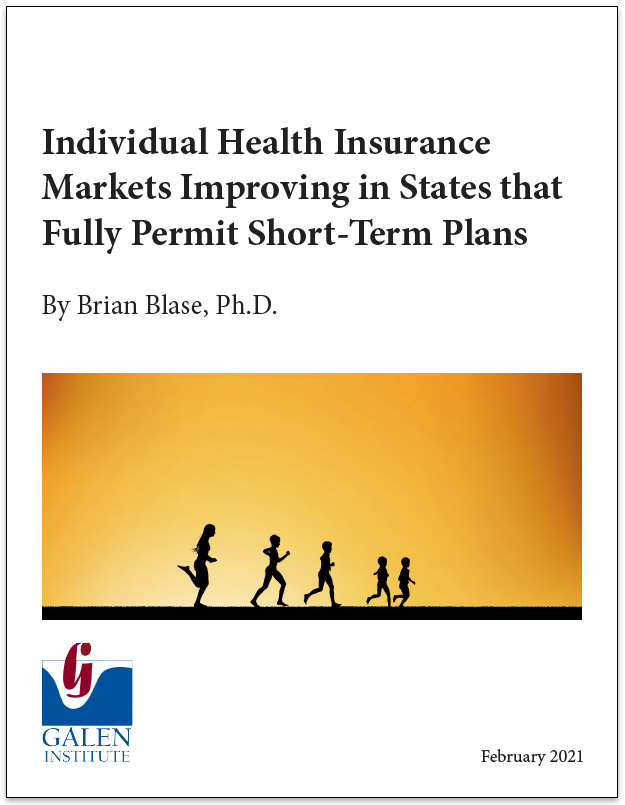In an important new paper with original findings, Galen Senior Fellow Brian Blase demonstrates that individual health insurance markets in states can be improved by the choice and competition short-term plans provide.
Short-term plans had been severely restricted by the Obama administration—limited to a one-time purchase of 90 days with no renewal. That’s hardly insurance. But new federal guidance issued in 2018 allowed the plans to be renewable for up to three years. More than three million people purchase these plans each year.
The plans are more affordable because they don’t have to comply with the ACA’s expensive and burdensome mandates and regulations. People can buy the policies they prefer. For many, they are the only option standing between them and being uninsured. Unlike ACA plans, people can sign up for short-term plans anytime, often with coverage starting the next day.
Critics had warned that the plans would undermine the market for ACA plans and drive up the cost of coverage by luring only healthy people to enroll.
Real world experience has proven the critics wrong.
In his paper, Individual Health Insurance Markets Improving in States that Fully Permit Short-Term Plans, Blase does a straightforward but powerful analysis. States have the option of regulating these plans themselves. About half follow the expanded federal guidelines and the rest either have some limits or they re-imposed strict Obama-era restrictions.
Here is what Blase found comparing the two groups:
- Contrary to projections, the evidence shows that the 2018 rule expanding short-term options not only increased consumer choice of coverage and reduced the number of uninsured but also had no adverse impact on the individual market.
- States that permit short-term plans have lost fewer enrollees in the individual market, have had far more insurers offer coverage in the market, and have had larger premium reductions since the 2018 rule took effect.
- The only states where individual market premiums have increased since 2018 are the five that effectively prohibit short-term plans (California, Massachusetts, New Jersey, New York, and Rhode Island).
“The 2018 short-term plan rule may have, in fact, helped improve the individual market,” Blase writes. “This could have occurred because short-term plans forced insurers selling ACA-compliant products to offer more attractive products because of the added competition and because people with short-term plans who got sick or injured had short-term plans pay their expenses instead of moving to the individual market to get coverage to pay their expenses.”
According to some news reports, the Biden Administration may take action to again restrict short-term coverage, perhaps similar to the 2016 rule. This would violate President Biden’s promise during the campaign that people would be able to maintain their private insurance.
If it were to restrict short-term coverage, it would likely increase the total number of uninsured by upward of 1 million people, decrease choice and the number of lower-premium products available to consumers, and reduce competition in state health insurance markets.
Experience should caution the new administration against limiting short-term coverage.

